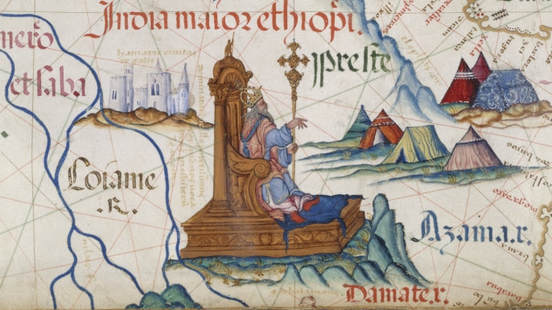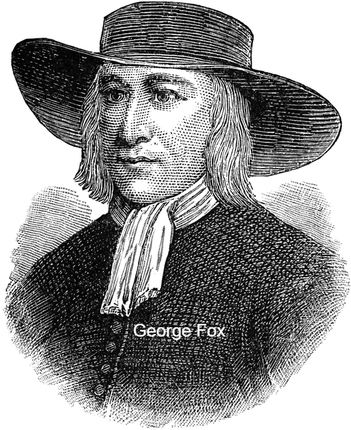The Land of Prester John
Ethiopia's Christianity

p.6 aberdeen press and journal – aug 13 1935. Prester john fear - General Smuts, takes a very grave view of Italy/absyina dispute. “for years the prospect of a conflict between the black races and the white at an indefinite date in the future has been present to the minds of those intimately connected with Africa. The legend of prester john – the white priest who is said to have ruled over innumerable negro tribe s- is known to many who are not writers of fiction, and iwth the sprad of education among the black peoples and their increasing command of the resources of civilisation there is latent in the consciousnesss of white men in Africa the fear that a real Prestern John, but black in colour, may yet emerge to lead the sons of Ham in a great crusade.” Should Italy be defeated the prestige of the white man in Africa and asia would be perilously affect. Smuts warns...
A letter writer to the “Darlington Echo”, Newcastle, UK, July 23rd 1940:
Seventy years ago I can recall singing with other children in Sunday School: “For the Lion of Judah shall break every chain, and give us the victory again and again.” The Lion of Judah is on his way to Abyssinia. The Sawdust Caesar who sits in the seat of mightier men may have sad reason to ponder over the fate of the Italian colonies.

In the late 16th and early 17th century scholars published a Bible in the English vernacular, subsequently to be known as the King James Version. The strength of Prester John's legacy is perhaps demonstrated by the fact that, when the scholars translated the Septuagint (the earliest extant Greek translation of the Old Testament from the Hebrew), they turned most mentions of "Kush" into mentions of "Ethiopia".
George Fox, the founder of the Quaker movement, made an early theological argument - at least by Europeans - concerning the harm of African enslavement in the Americas. Fox considered the "Ethiopians" of the Bible to be enslaved Africans. Soon, European abolitionists used Jeremiah 13:23 to argue for the end of slavery: "Can the Ethiopian change his skin, or the leopard his spots? then may ye also do good, that are accustomed to do evil." . Click here to explore another famous occurance of Ethiopia in the Bible.
George Fox, the founder of the Quaker movement, made an early theological argument - at least by Europeans - concerning the harm of African enslavement in the Americas. Fox considered the "Ethiopians" of the Bible to be enslaved Africans. Soon, European abolitionists used Jeremiah 13:23 to argue for the end of slavery: "Can the Ethiopian change his skin, or the leopard his spots? then may ye also do good, that are accustomed to do evil." . Click here to explore another famous occurance of Ethiopia in the Bible.
In all these ways the legend of Prester John came to refer to the prospect of African redemption.